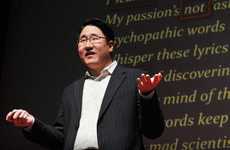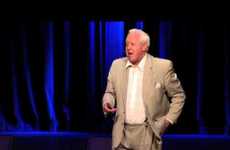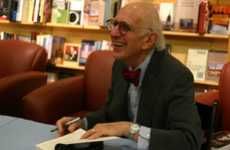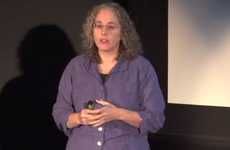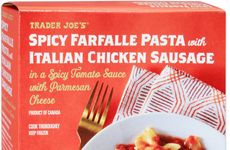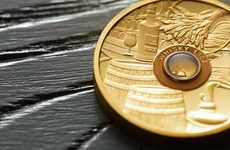
Molly Crockett Keynotes
Neuroscientist Dr. Molly Crockett's keynotes focus on the brain's sense of morality and what...

Need Inspiration?
Get inspired by 4,000+ keynote speaker videos & our founder, a top keynote speaker on innovation.
Molly Crockett's Successful Decision-Making Keynote Debunks Studies
Elise Ying-Hei Ho — December 19, 2012 — Keynote Trends
References: mollycrockett & youtube
Neuroscientist Dr. Molly Crockett explores the brain's complex capabilities and urges consumers not to be distracted by the media when it comes to scientific discoveries in her successful decision-making keynote.
The secret to successful decision-making, Dr. Crockett explains, is not just a simple cheese sandwich or a few pieces of chocolate. In a study she conducted regarding the brain's reaction when one is being treated unjustly, the neuroscientist discovered that a lower level of tryptophan, an amino acid often associated with turkey and warm milk, makes the brain more likely to seek revenge. Since one of serotonin's properties is to produce hormones that induce happiness, the lack of tryptophan, a key ingredient to producing the hormone, causes individuals to feel the need to seek out retribution.
Soon after this study was released, the media exploded with titles alluding to the solution of mood swings and increase self control, suggesting that chocolates and cheese sandwiches are all one needs. While these foods also promote the production of serotonin, Dr. Crockett explains that these are not always the correct course of action. The neuroscientist also calls on studies that suggested that an image of a brain has the power to sway one's judgement and that the it also reacts in a loving manner when one looks upon an iPhone. Dr. Crockett argues that while one conclusion can suggest something beneficial, another identical study can argue otherwise, prompting audience member's to ask the difficult questions before coming to any conclusion themselves.
The secret to successful decision-making, Dr. Crockett explains, is not just a simple cheese sandwich or a few pieces of chocolate. In a study she conducted regarding the brain's reaction when one is being treated unjustly, the neuroscientist discovered that a lower level of tryptophan, an amino acid often associated with turkey and warm milk, makes the brain more likely to seek revenge. Since one of serotonin's properties is to produce hormones that induce happiness, the lack of tryptophan, a key ingredient to producing the hormone, causes individuals to feel the need to seek out retribution.
Soon after this study was released, the media exploded with titles alluding to the solution of mood swings and increase self control, suggesting that chocolates and cheese sandwiches are all one needs. While these foods also promote the production of serotonin, Dr. Crockett explains that these are not always the correct course of action. The neuroscientist also calls on studies that suggested that an image of a brain has the power to sway one's judgement and that the it also reacts in a loving manner when one looks upon an iPhone. Dr. Crockett argues that while one conclusion can suggest something beneficial, another identical study can argue otherwise, prompting audience member's to ask the difficult questions before coming to any conclusion themselves.
3.3
Score
Popularity
Activity
Freshness


